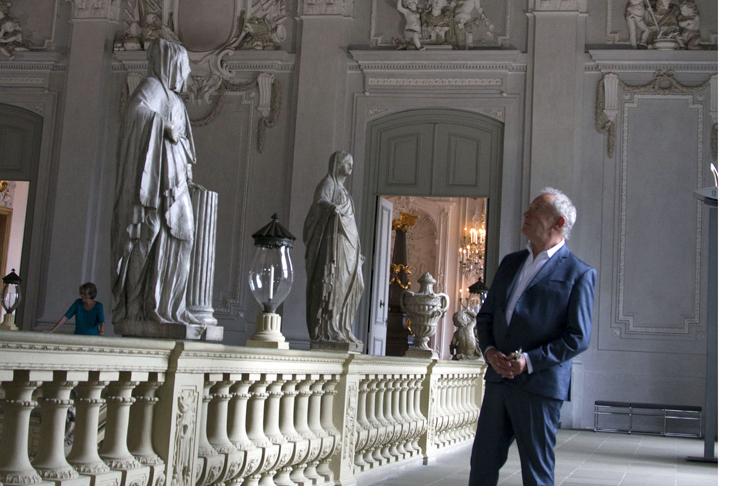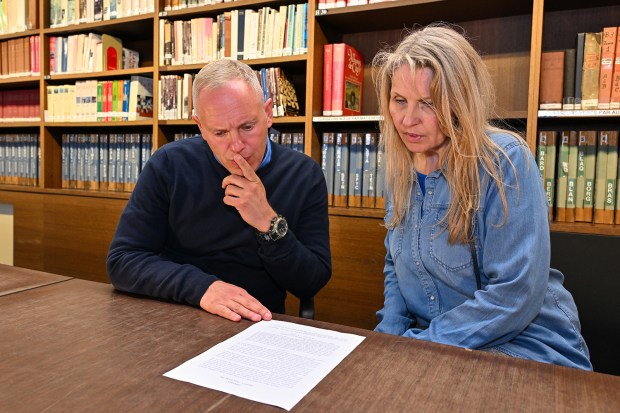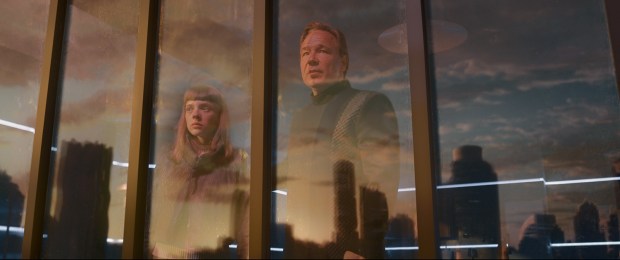Most of the history I know and remember comes from my inspirational prep school teacher Mr Bradshaw. History was taught so much better in those days. It was all kings and queens, battles and dates, with no room for any of that nonsense like,‘Imagine you are a suffragette going to protest the oppressive male hegemony at the races. Describe how it feels to be crushed by the king’s horse.’
Nor was there any question that you were participating in some kind of collaborative learning experience. Your ‘master’ taught; you listened and learned — and occasionally made distracting jokes and got bits of chalk chucked at you. That was the deal and it worked very well. This was the tail end of the era defined by programmes like Kenneth Clark’s Civilisation: one still confident enough to imagine that there are such things as good and bad art, superior and inferior cultures, right and wrong judgments.
Now, instead, we have Civilisations (BBC2, Thursdays). Here’s one of the fundamental differences between this and its unpluralised predecessor. When Clark says at the beginning that he doesn’t know what civilisation is (‘I don’t know. I can’t describe it in abstract terms — yet’), it’s just false modesty. When Simon Schama says the same thing, it’s post-modern intellectual cowardice. He doesn’t want to venture an opinion, for who would dare when we now know that all cultures and values have equal merit, and that to ‘privilege’ one over another is ‘elitist’?
This is a pity, because when he’s not being a flustered, neurotic old woman blithering on about refugee rights or the horrors of Brexit, Schama has the makings of a first-rate TV historian. As presenters go, I’d say he’s my third favourite after Andrew Graham-Dixon and the brilliant James Fox (currently fronting the must-see The Art of Japanese Life on BBC4). I like his passion, his intensity, his turn of phrase and — key, this one — his lack of mannerisms so irksome that you can’t take in what he’s saying.
‘It’s 3-D, folks. It’s coming at you!’ he enthused at one point. From anyone else, this would have been vulgarly de trop, but Schama gets away with it. Anyway, he was right. The object he was discussing — an agate sealstone unearthed as recently as 2015 from a Minoan tomb — truly was one of the most gobsmackingly wondrous artefacts ever shown on screen.
Crafted around 1450 BC, it shows warriors locked in combat, the detail — such as the musculature on the arm of a fallen man so anatomically accurate it could have been painted by Leonardo — all the more extraordinary for the fact that the sealstone is just one-and-a-half inches long. (Massive kudos, by the way, Simon, for describing it in imperial rather than metric. Very unexpected and anti-BBC, that one. Shame about all the references to ‘BCE’). It appears to depict the era of the Odyssey yet, as Schama noted, it was made 700 years before Homer — ‘the time between Chaucer and us’.
But, of course, Schama being Schama, he just couldn’t resist sneaking in a bit of politics. Europe’s first great civilisation — the Minoans — were, he claimed, ‘migrants from western Asia’. Meanwhile, we learned of Petra that many of its 30,000 citizens were ‘immigrants from all over the region — there were Egyptians and Syrians and Judaeans and Greeks and Romans — all coming to Petra’. I visited Petra once with my then-girlfriend, who was subsequently almost raped by our tour guide when our donkeys got separated in the Siq. As we scrambled over its rose-red stones, half as old as time, I have to admit that I lacked the insight to appreciate that I was actually witnessing history’s first advertisement for Angela Merkel’s enlightened immigration policy.
Mind you, it’s going to get a lot worse the closer it gets to the present. I got a sneak preview of this when I watched a few minutes of next week’s episode, presented by the ineffable Mary Beard. She describes ancient Athens as being a city where ‘people of all classes and backgrounds’ lived ‘cheek by jowl in a grand experiment in urban living’.
Does that chummily demotic motorway pile-up of jarring anachronism and lazy cliché really bring us closer to understanding ancient Athens than Kenneth Clark’s austere, aristocratic didacticism did? And was it really necessary thence to compound the horror by going on to describe Greek culture as ‘deeply gendered’ and ‘rigidly hierarchical’? O tempora, o mores! The barbarians are past the gates. It’s all downhill from here…
Got something to add? Join the discussion and comment below.
Get 10 issues for just $10
Subscribe to The Spectator Australia today for the next 10 magazine issues, plus full online access, for just $10.
You might disagree with half of it, but you’ll enjoy reading all of it. Try your first month for free, then just $2 a week for the remainder of your first year.















Comments
Don't miss out
Join the conversation with other Spectator Australia readers. Subscribe to leave a comment.
SUBSCRIBEAlready a subscriber? Log in